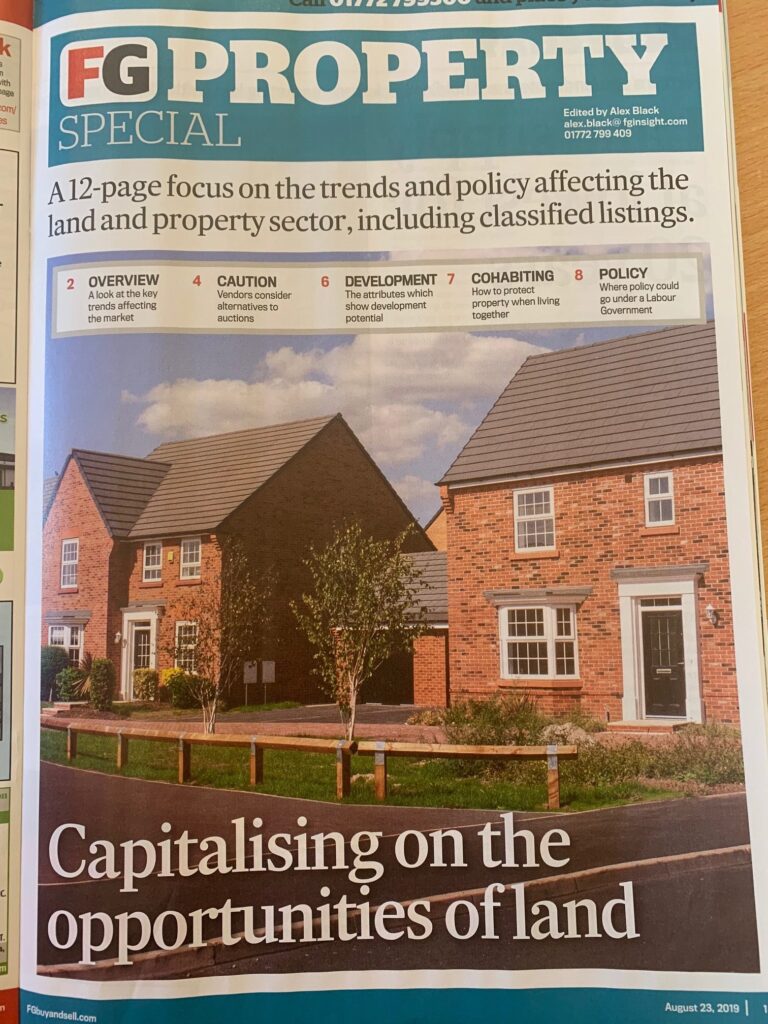An article featuring the views of Colin Muller was published in the August 23rd edition of Farmers Guardian. Colin had been invited by Business Reporter, Alex Black, to comment on how farmers and landowners can gain planning permission and realise the full potential of their land for the magazine’s summer Property Special.
Here is a brief synopsis of the item:
Move quickly to realise development potential
The article focused on the ‘unrealised potential’ for development of land on the edge of towns. Colin said that with the current government policy focusing on targets for new homes, this could open up opportunities for farmers and landowners. With farmers facing pressure due to constantly changing meat and dairy prices and from supermarkets wanting to keep farmgate prices down, they could be exploring other possible uses of their land.
Land on the edge of settlement, where urban planners are seeking to extend villages and towns, is typically ripe for development. However, it preferably shouldn’t be in the green belt; an area of protected natural beauty; or a flood zone, as these could all limit the potential of the land.
In terms of planning for a residential development, a minimum of three acres of suitable land is needed to spark interest from a local authority. The important issue is to carry out an assessment of the land as soon as possible: Colin commented that most farmers do too little, too late. They need to be able to persuade the council that the land is both suitable and available for development – and it will also have to meet the council’s long list of requirements and regulations.
Colin added that there can be opportunities for reducing the barriers to planning permission, including a lack of a five-year housing land supply or a poor result in a housing delivery test. A total of 29 local authorities fall into this category and, as a result, could have their local policies overridden.
He concluded that it isn’t cheap or easy to promote land, but by starting early and providing as much detail as possible, the landowner is much more likely to be noticed by the council and this could ultimately make it easier to get planning permission.



